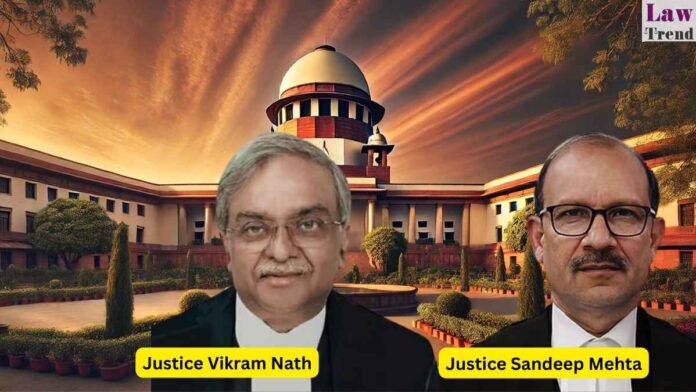The Supreme Court has held that criminal proceedings involving serious economic offences, use of forged documents, and the Prevention of Corruption Act cannot be quashed merely on the basis of a One-Time Settlement (OTS) between the accused and the bank. A Bench comprising Justice Vikram Nath and Justice Sandeep Mehta set aside the judgment of
To Read More Please Subscribe to VIP Membership for Unlimited Access to All the Articles, Download Available Copies of Judgments/Order, Acess to Central/State Bare Acts, Advertisement Free Content, Access to More than 4000 Legal Drafts( Readymade Editable Formats of Suits, Petitions, Writs, Legal Notices, Divorce Petitions, 138 Notices, Bail Applications etc.) in Hindi and English.




